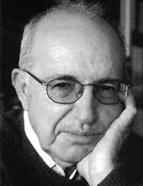

Shortly after the Carnation Revolution of 25 April 1974, António Borges Coelho, who had been proposed for the position at a student assembly, assumed the role of visiting assistant professor at the Faculty of Arts and Humanities in Lisbon. From that point on, he taught a wide range of Modern History courses and seminars with an open mind, encouraging debate, inspiring study and earning the esteem of generations of students. He also became a member of various faculty bodies, participated in the management of research units, and led the História e Sociedade [History and Society] journal.
His works are continually reedited, incorporating new findings from research conducted in new conditions. His edited works continue to be published, such as Questionar a História [Questioning History ], which includes essays where he revisits familiar themes with a fresh enthusiasm, such as the origins of scientific knowledge in Garcia de Orta or the philosophy of Benedict de Spinoza. His study of Spinoza, which highlights the philosopher’s connections to Portugal, prompted him to explore the role of the Jewish community in Portuguese culture and how the potential contributions of this community were diverted to northern Europe due to repressive forces, with the Inquisition serving as a key instrument of suppression. This led to his initial PhD project, Os Cristãos Novos Portugueses na Primeira Metade do Século XVII e Bento Espinosa [The New Portuguese Christians in the First Half of the 17th Century and Baruch Spinoza], which, due to its scope, was incorporated into the study “A Inquisição de Évora. Dos Primórdios a 1668 )” [The Évora Inquisition. From the Beginnings to 1668], which he defended in February 1986.
